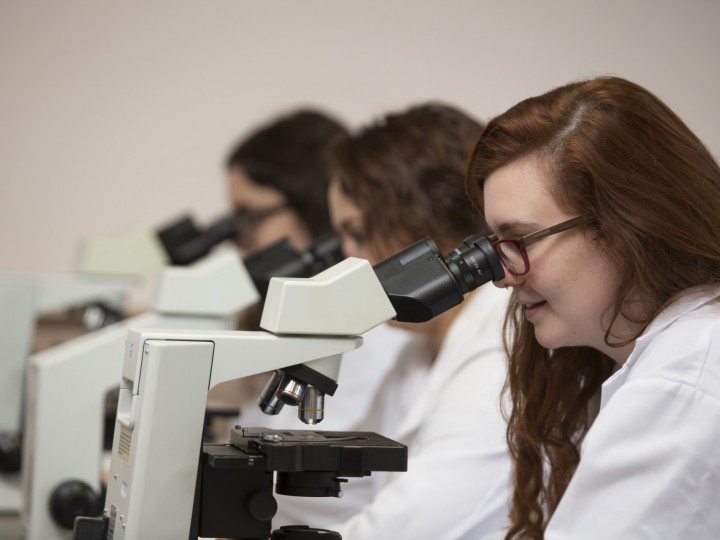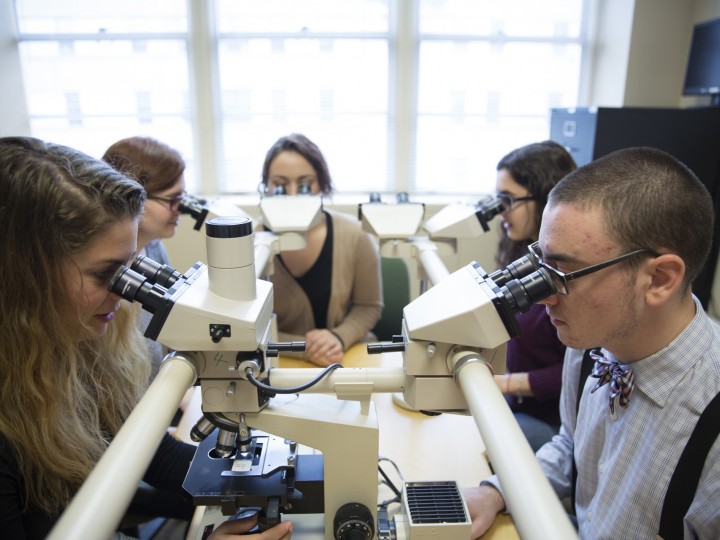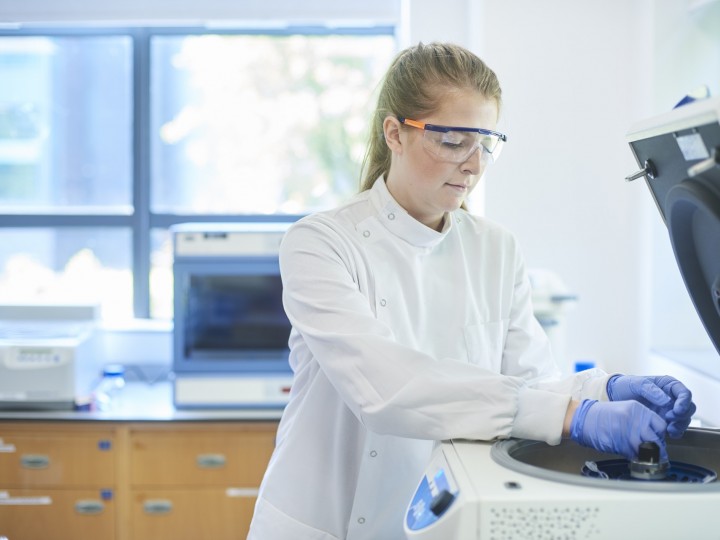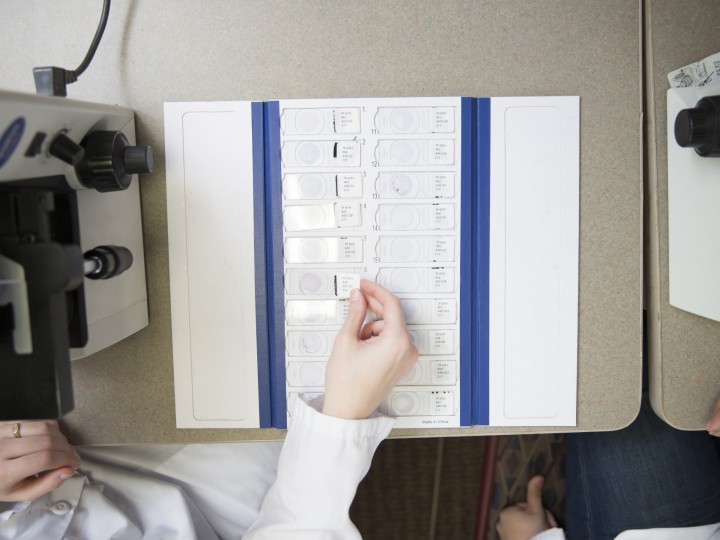Prepare to make a positive impact on human health with a cytotechnology degree from ACPHS.
The cytotechnology program is designed specifically to prepare you for national certification as a cytotechnologist. Our graduates have a 100% pass rate on the national cytologist certification exam administered by the American Society for Clinical Pathology (ASCP). The ACPHS cytotechnology degree also has a 100% job placement rate, with graduates working at some of the top medical facilities both nationally and internationally. Please visit professional licensure disclosures for more information.
Gain real-world experience through a wide variety of clinical rotation options, with the ability to choose from 40 different ACPHS partner sites. Work closely with faculty to tailor your capstone project to explore a field that interests you and fits your professional goals. When you earn your cytotechnology degree at ACPHS, you’ll be prepared with the hands-on skills and training to hit the ground running in your career.
The cytotechnology and molecular cytology degree is an accelerated master’s program, which allows you to earn your degree in 16 months. Students enroll in August and graduate the following December.

Cytology is the study of living cells and the detection of various infections, autoimmune diseases, and abnormalities such as precancerous and cancerous cells. As a licensed cytotechnologist, you'll act as a cell detective – examining human cellular specimens to explain what is happening within a patient.
Successful cytotechnologists possess strong attention to detail and a passion for solving puzzles. But most of all, they share a desire to improve the health of patients – many of whom they may never even see.
Cytotechnologist jobs are found in hospital and private laboratories, university medical centers and government facilities. Because of the increased use of cytologic testing for the confirmation of disease, more cytotechnologists are needed.

Students may choose among 40 different ACPHS partner sites to complete their rotations, where they will work under the guidance of a licensed practitioner.
ACPHS' location close to New York City and Boston opens a variety of rotation options at locations throughout the Northeast and beyond.
During your final semester, you will be required to complete a three-credit capstone project where you will choose a particular aspect of the field to study in greater depth, bringing together everything you’ve learned in the classroom, lab and in your rotations.

ACPHS graduates have gone on to successful careers as cytotechnologists, lab supervisors, and cytology educators working at organizations like:
• Albany Medical Center
• St. Peter's Health Partners
• University of Rochester Medical Center
• Rochester Regional Health
• Roswell Park Cancer Institute
• Northwell Health
• Stony Brook Medicine
According to Salary.com, the median cytotechnologist salary with a master's degree is $80,110 - $84,310. Having a master's degree will also position you well for advancement into senior laboratory roles as you gain more experience.

The curriculum includes courses such as Cellular Pathophysiology and Histology, which surveys the biochemical and molecular mechanisms underlying disease processes.
You’ll take our Flow Cytometry course where you’ll cover topics like machine set-up and operation, fluorochromes and fluorescence, spectral overlap and compensation, experimental design, data collection and multi-parameter analyses and also develop critical skills in fine needle aspiration.
The ACPHS Cytotechnology and Molecular Cytology program is accredited by the Commission on Accreditation for Allied Health Education Professions (CAAHEP), 9355 - 113th Street North, #7709, Seminole, FL 33775.
Instructor
jenna.leblanc@acphs.edu
518-694-7315
Albany, NY 12208
admissions@acphs.edu
518-694-7221

